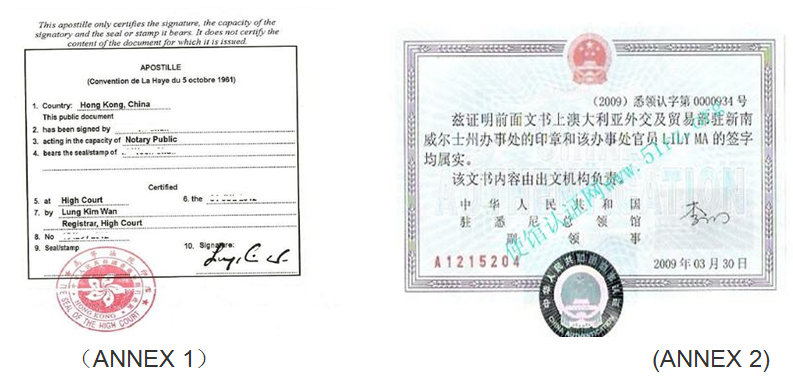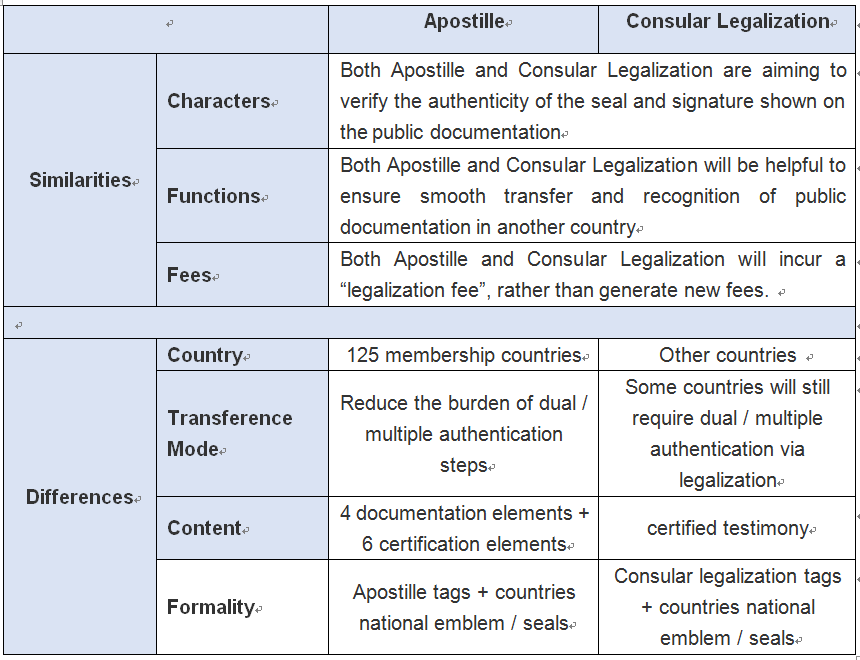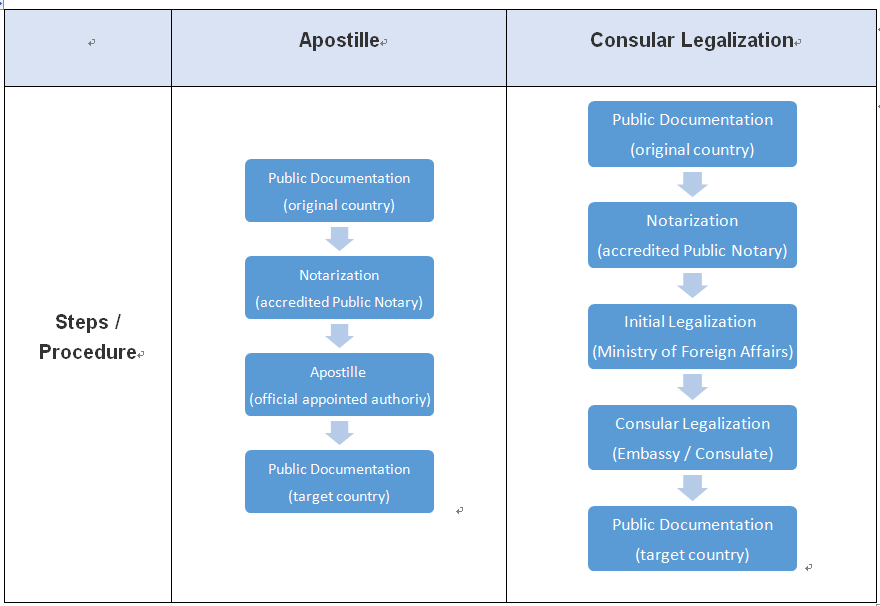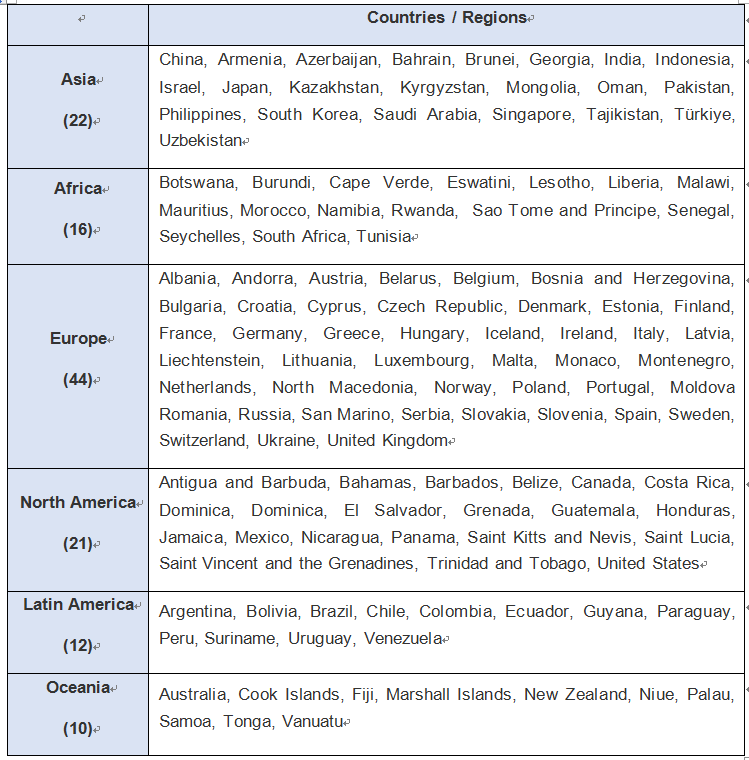
Excellent news coming from China! The China Embassy issued a notice* stating that from 7 November 2023 public documents with a proper Apostille issued in membership countries / regions, can be used in mainland China forgoing the often lengthy, confusing consular legalization process after notarization was completed.
In the past, our clients and all foreign parties would encounter huge difficulties to pass the procedural examination process when filing to cases with the Courts, amongst other situations where legalization was previously required, specifically due to the strict requirement to first notarize then legalize certain documents. Since these changes came into force on 7 November, IP rights owners will find it easier to protect their legitimate interests in China with a far more simple, cost-and-time saving process of authenticating documents.
It will certainly take time for the Courts to smoothly implement these changes as they accept Apostille documents, however foreign parties can take notice that the Embassy and Consulates along with the local governments have all issued announcements to cease the legalization procedure at the Chinese Embassy and Consulates.
I. What is the Convention of 5 October 1961 Abolishing the Requirement of Legalization for Foreign Public Documents?
The draft Convention was discussed at the 9th section of the Hague International Private Conference in October 1961, and officially came into force around January 1965. After that, the Convention has become the most widely applicable and ratified important international treaty under the framework of the Hague Conference, aiming to simplify the procedures of the international circulation of public documentations, and facilitate international trade transactions along with personnel exchanges in a more convenient and effective way by replacing traditional consular legalization.
In recent years, by encouraging low sensitivity and high convenience, the Convention has led to rapid growth for many new members of the 125 membership countries / regions thus far, including G20 countries, Asia-Pacific Economic countries, BRICS members, and additional major economies, as well as most of the important trading partners and participants in the “Belt-and-Road” initiative. However, it took until now for China to accept and implement the Apostille procedures.
Note that the Convention had already been implemented in Hong Kong, Macao, and Taiwan before 7 November 2023, thus, the situation will remain unchanged, with documents with an Apostille being accepted.
II. What is an Apostille?
The Apostille process is fairly common in other jurisdictions while the legalization process that was previously used in China was often confusing and new to many parties. According to the Convention, Apostilles (annex 1) issued by the country of origin is a standardized certificate used to certify the authenticity of the signature, the capacity in which the person signing the document acts and, where appropriate, the identity of the seal or stamp which it bears.
Generally, after affixing an Apostille certification, the related documents could then freely circulate between the contracting membership countries / regions, without the need for further consular legalization (Annex 2), which certainly makes things more cost-effective, convenient, and faster than the prior required consular legalization process.

Generally, the Apostille will include two parts as shown below:

For documents produced in China to be used in other member countries, the Ministry of Foreign Affairs of China will be the designated authority to handle the Apostille process. Furthermore, certain foreign affairs offices entrusted by the Ministry of Foreign Affairs of China will also have authority to issue Apostilles for public documents produced within their own administrative jurisdictions. Additionally, Apostilles could be verified online at https://consular.mfa.gov.cn/VERIFY/.
Ⅲ. Comparing Processes – Apostille vs. Legalization
Below is a brief comparison of the Apostille and legalization process for easy

reference:

Ⅳ. List of membership countries/ regions contracted with China
To date, the following countries have been listed as those utilizing the Apostille process, and thus can do away with the legalization process between it and China:

Ⅴ. Summary of the Benefits and Impact of the Implementation of the Convention
With the Convention implemented in China, we now can expect the following benefits:
A. A change from 20+ business days to authenticate documents (and sometimes much longer where problems were encountered) to only several business days, resulting in significant time saving and also helping parties avoid missing deadlines as they wait for their authenticated documents to be returned for filing
B. The notarization plus legalization process often cost several hundred dollars or more, but after the change the estimated savings is more than RMB 300,000,000 for parties needing authenticated documents each year in China;
C. With an Apostille being widely accepted among different countries / regions, this can facilitate a more efficient system and further enhance business between China and other countries.
If you have any questions about how this change may affect your own business or existing cases in China. Don’t hesitate to contact us at brandy.baker@kangxin.com / Fiona.zhang@kangxin.com. .
*See: Notice on the Cessation of Consular Legalization at the Chinese Embassy and Consulates after China’s Accession to the Convention of 5 October 1961 Abolishing the Requirement of Legalization for Foreign Public Documents


Follow us






